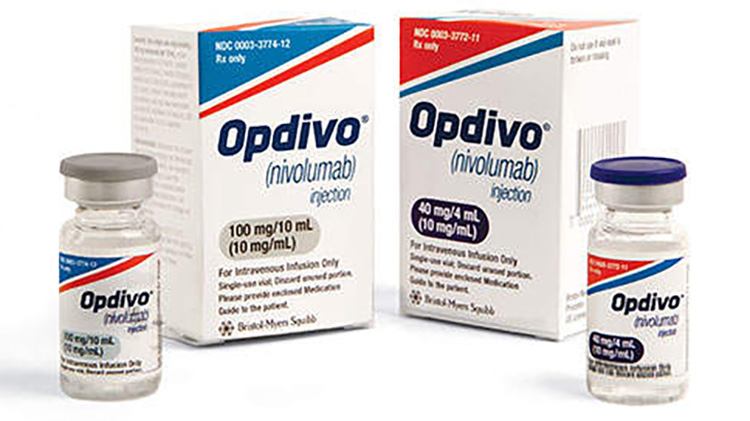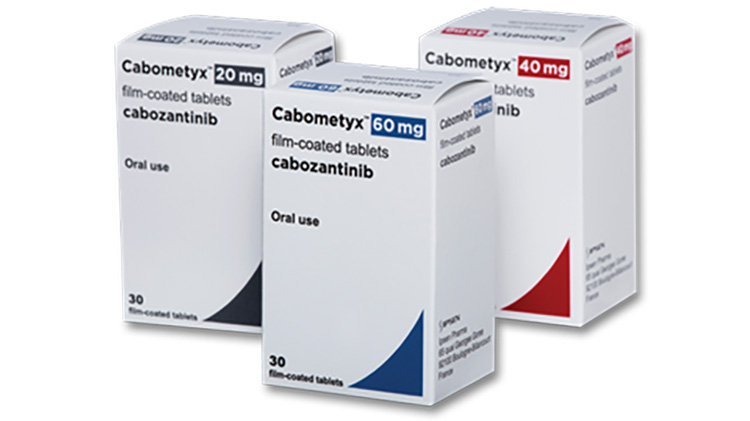Opdivo (Nivolumab) vs Cabometyx (cabozantinib)
Opdivo (Nivolumab) vs Cabometyx (cabozantinib)
Opdivo (Nivolumab) is an immune checkpoint inhibitor designed to harness the body's immune system to fight cancer by blocking the PD-1 protein on T cells, thereby enhancing the immune response against cancer cells. Cabometyx (cabozantinib) is a tyrosine kinase inhibitor that targets multiple tyrosine kinases involved in tumor growth and angiogenesis, effectively disrupting the processes that tumors need to grow and spread. When deciding between the two, a patient should consider factors such as the type and stage of cancer, previous treatments, potential side effects, and the overall treatment strategy recommended by their oncologist, as each medication has a distinct mechanism of action and is approved for different indications in the oncology setting.
Difference between Opdivo and Cabometyx
| Metric | Opdivo (Nivolumab) | Cabometyx (cabozantinib) |
|---|---|---|
| Generic name | Nivolumab | Cabozantinib |
| Indications | Various types of cancer, including melanoma, lung cancer, kidney cancer, bladder cancer, head and neck cancer, and others. | Advanced renal cell carcinoma, hepatocellular carcinoma, and medullary thyroid cancer. |
| Mechanism of action | Programmed death receptor-1 (PD-1) blocking antibody, which enhances the immune response against cancer cells. | Tyrosine kinase inhibitor that targets MET, VEGFR, and AXL, involved in tumor growth, angiogenesis, and metastasis. |
| Brand names | Opdivo | Cabometyx |
| Administrative route | Intravenous injection | Oral |
| Side effects | Fatigue, rash, musculoskeletal pain, pruritus, diarrhea, nausea, and potential immune-related adverse effects. | Diarrhea, fatigue, nausea, decreased appetite, hypertension, palmar-plantar erythrodysesthesia, increased ALT, and AST. |
| Contraindications | Patients with hypersensitivity to nivolumab or any of its excipients. | Patients with hypersensitivity to cabozantinib or any of its excipients. |
| Drug class | Immune checkpoint inhibitor | Tyrosine kinase inhibitor |
| Manufacturer | Bristol Myers Squibb | Exelixis, Inc. |
Efficacy
Overview of Opdivo (Nivolumab) in Kidney Cancer Treatment
Opdivo, also known by its generic name Nivolumab, is an immunotherapy drug that has shown significant efficacy in the treatment of kidney cancer, specifically advanced renal cell carcinoma (RCC). As a programmed death-1 (PD-1) immune checkpoint inhibitor, Opdivo works by enhancing the immune system's ability to detect and fight cancer cells. Clinical trials have demonstrated that Opdivo can lead to improved overall survival rates compared to some traditional therapies. In particular, when used in combination with other medications or after prior anti-angiogenic therapy, Nivolumab has been found to extend the survival of patients with advanced RCC.
Cabometyx (Cabozantinib) Effectiveness in Kidney Cancer Management
Cabometyx, with the active ingredient cabozantinib, is a tyrosine kinase inhibitor that has been approved for the treatment of advanced kidney cancer. Its mechanism involves targeting multiple tyrosine kinases associated with tumor growth and angiogenesis, such as MET, VEGFR, and AXL. Clinical trials have shown that Cabometyx can significantly improve progression-free survival and overall survival in patients with advanced RCC, especially in those who have received prior anti-angiogenic therapy. The drug has been praised for its ability to reduce the risk of disease progression or death in patients with this form of cancer.
Combination Therapy: Opdivo and Cabometyx in Clinical Trials
Recent studies have explored the combination of Opdivo and Cabometyx as a treatment regimen for advanced kidney cancer. This combination has been particularly promising, with data suggesting a synergistic effect that enhances the efficacy beyond what each drug can achieve alone. Clinical trials have reported improved outcomes in terms of progression-free survival, overall survival, and objective response rates when these two drugs are used together. This combination therapy has become an important option for patients with advanced RCC, offering a potential for improved quality of life and extended survival.
Conclusion
Both Opdivo and Cabometyx have individually demonstrated efficacy in the treatment of advanced renal cell carcinoma, and their combination has further enhanced treatment outcomes. The use of these drugs represents a significant advancement in kidney cancer therapy, providing hope for patients with this challenging disease. Ongoing research continues to refine the use of these medications, with the aim of improving efficacy and reducing side effects for patients with advanced RCC. As with all medical treatments, the use of Opdivo and Cabometyx should be guided by a healthcare professional, taking into account the individual patient's health status and treatment history.
Regulatory Agency Approvals
Opdivo
-
European Medical Agency (EMA), European Union

-
Food and Drug Administration (FDA), USA

-
Health Canada

-
Pharmaceuticals and Medical Devices Agency (PMDA), Japan

-
Therapeutic Goods Administration (TGA), Australia

-
Medsafe (NZ)

Cabometyx
-
European Medical Agency (EMA), European Union

-
Food and Drug Administration (FDA), USA

-
Health Canada

-
Therapeutic Goods Administration (TGA), Australia

Access Opdivo or Cabometyx today
If Opdivo or Cabometyx are not approved or available in your country (e.g. due to supply issues), you can access them via Everyone.org.
How it works

Make an enquiry
Choose the medicine you want to buy, answer a couple of questions, and upload your prescription to speed things up. We’ll get back to you within 24 hours.


Make an enquiry
Choose the medicine you want to buy, answer a couple of questions, and upload your prescription to speed things up. We’ll get back to you within 24 hours.


Breeze through the paperwork
We'll guide you through the required documents for importing unapproved medicine, ensuring you have all the necessary information.


Get a personalized quote
We’ll prepare a quote for you, including medicine costs and any shipping, administrative, or import fees that may apply.


Receive your medicine
Accept the quote and we’ll handle the rest - sourcing and safely delivering your medicine.

Some text on this page has been automatically generated. Speak to your physician before you start a new treatment or medication.
Let's talk
If you have any questions, call us or send us a message through WhatsApp or email:
Contact us




